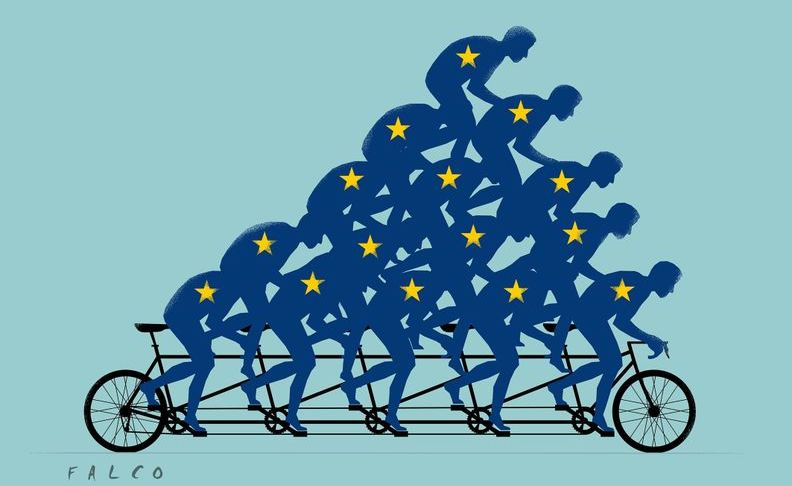The German Government might refuse the fully negotiated free trade agreement between the European Union and Canada (CETA) amidst “fears, foreign firms might get too much power”, according to a report by Cerstin Gammelin, EU correspondent for the Südddeutsche Zeitung.
German EU-Diplomats confirmed on Friday that the German Government cannot sign the treaty with Canada ‘as it is negotiated now’. Germany would generally be ready to initial the treaty in September, though the chapter on legal protection for investors is said to be ‘problematic’ and for now not acceptable.’
According to the paper, the acceptance of the Transatlantic investment and trade partnership (TTIP) agreement with the US “depends on” the acceptance of CETA by the 28 member states.
‘The free trade agreement with Canada is a test for the agreement with the USA’, said a high EU Commission official in Brussels. In case of a refusal of the agreement with Canada, ‘the one with the US is also dead.’
Nieuwsbrief in het Nederlands
Berlin has repeatedly confirmed its reluctance to the investment protection clauses negotiated within the CETA and TTIP frameworks, even though Chancellor Angela Merkel has expressed her general support for a free trade agreement with the US.
In some member states a dispute rages on the legal securities firms should get when investing in other countries. While the investment protection was generally accepted in the free trade agreement with Canada, the same clauses where generally rejected in the agreement with the USA. […] The federal chancellor for economics Sigmar Gabriel stressed that he believes the idea of granting American investors legal coverage in the agreement to be superfluous. There was no comment on the fact that the EU Commission has been tasked by the member states to negotiate these clauses, and to include them in the agreement with Canada.
Those investment protection clauses are known as investor-state dispute settlement (ISDS) mechanism. Defenders of ISDS say it is necessary for making bilateral investments work. Opponents of the measure say it gives businesses to much power to tackle states and governments in court as well as to escape regulations.









